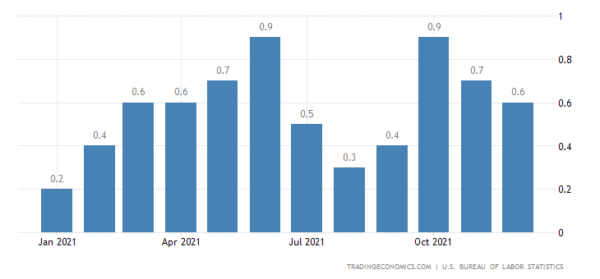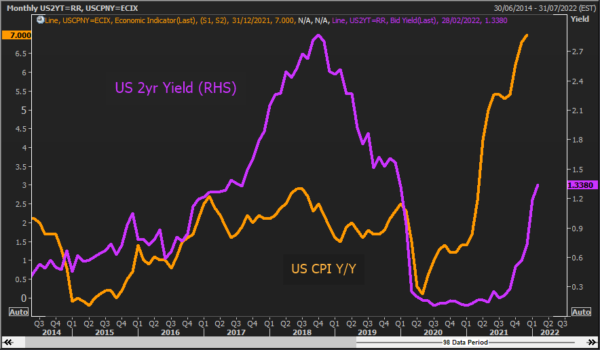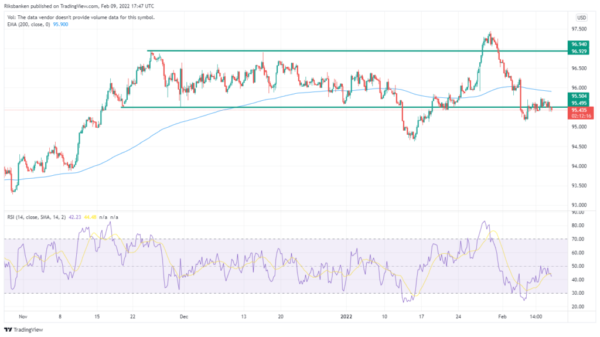Increasingly higher inflation prints from the US may harm rather than prop up the US dollar index (DXY).
A big beat on January CPI is needed
Increasingly higher inflation prints from the US my harm rather than prop up the US dollar index (DXY). The median consensus is already calling for a 7.3% y/y print with a narrow forecast range of 7.0%-7.6% y/y, versus a 7% print for December, according to a recent poll by Bloomberg. Granted, this is high by any measure, but on a month-to-month basis, headline inflation has been decelerating since November 2021.
Is the inflation narrative dead?
Even a consensus print could put downward pressure on the DXY. Rising inflation has been the dominate theme that has lifted Fed rate hikes expectations, and in turn helped lift the DXY. Interest rate markets imply four to five hikes in 2022, followed by potentially two or three more in 2023. A consensus CPI number or a miss has the potential to cause some of those interest rate expectations to unwind.
Attention could turn to growth
Death of the inflation story could quickly shift the market narrative away from inflation and firmly on growth. The International Monetary Fund’s World Economic Outlook points to US economic activity slowing from 5.7% last year to 4.0% in 2022. Furthermore, more timely indicators like the ISM January manufacturing and non-manufacturing indices show a slower pace of activity in January.
Labour market conditions, on the other hand, have held up as indicated by January’s strong labour market report. That said, the US labour cost index fell to 1%y/y in Q4 last year vs 1.3% y/y in Q3, casting doubts about a wage-price spiral. In addition, labour market participation, especially in certain sectors, remains depressed compared to pre-pandemic levels.
Technicals don’t look bullish
Likewise, the technical picture for the DXY doesn’t exactly exude confidence about the US dollar. After the big surge in the DXY in November 2021, the index failed a sustained break above the 96.940 95.495 range that has more or less held up since the end of December. More recently, the index has tested and been hugging the bottom of that range. RSI and the 200-day exponential moving average, also tell a less than bullish story.



